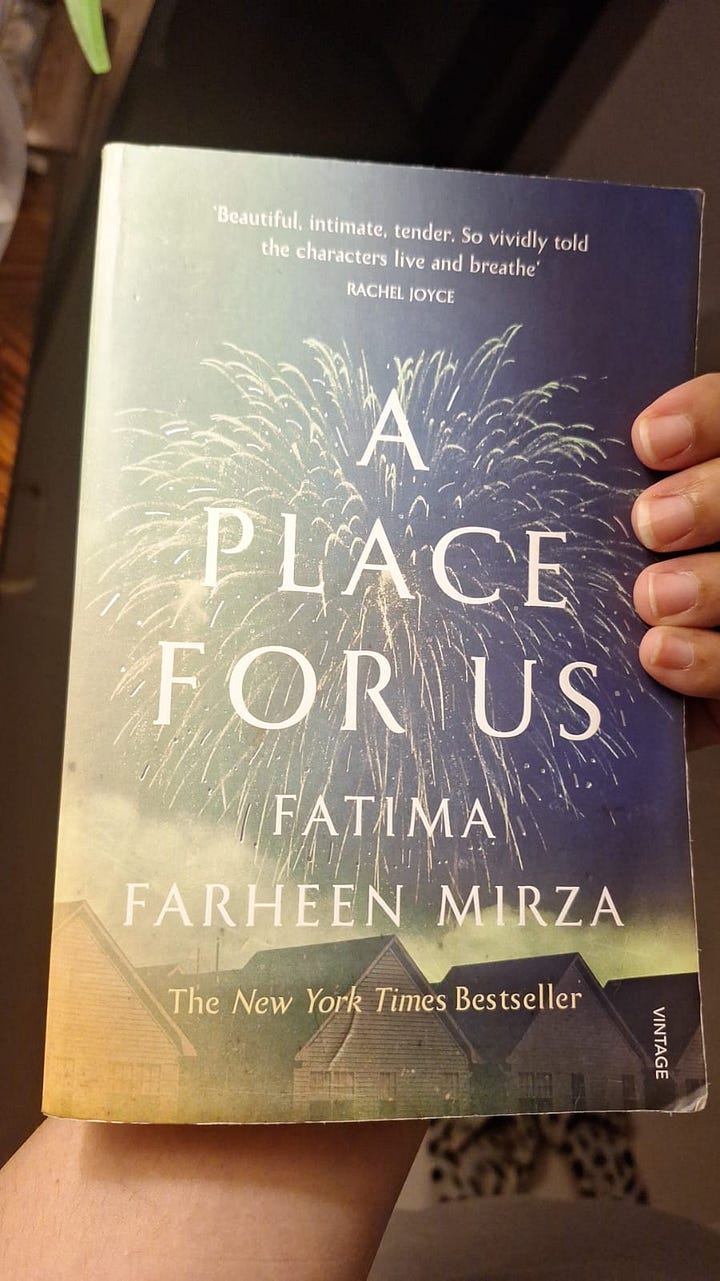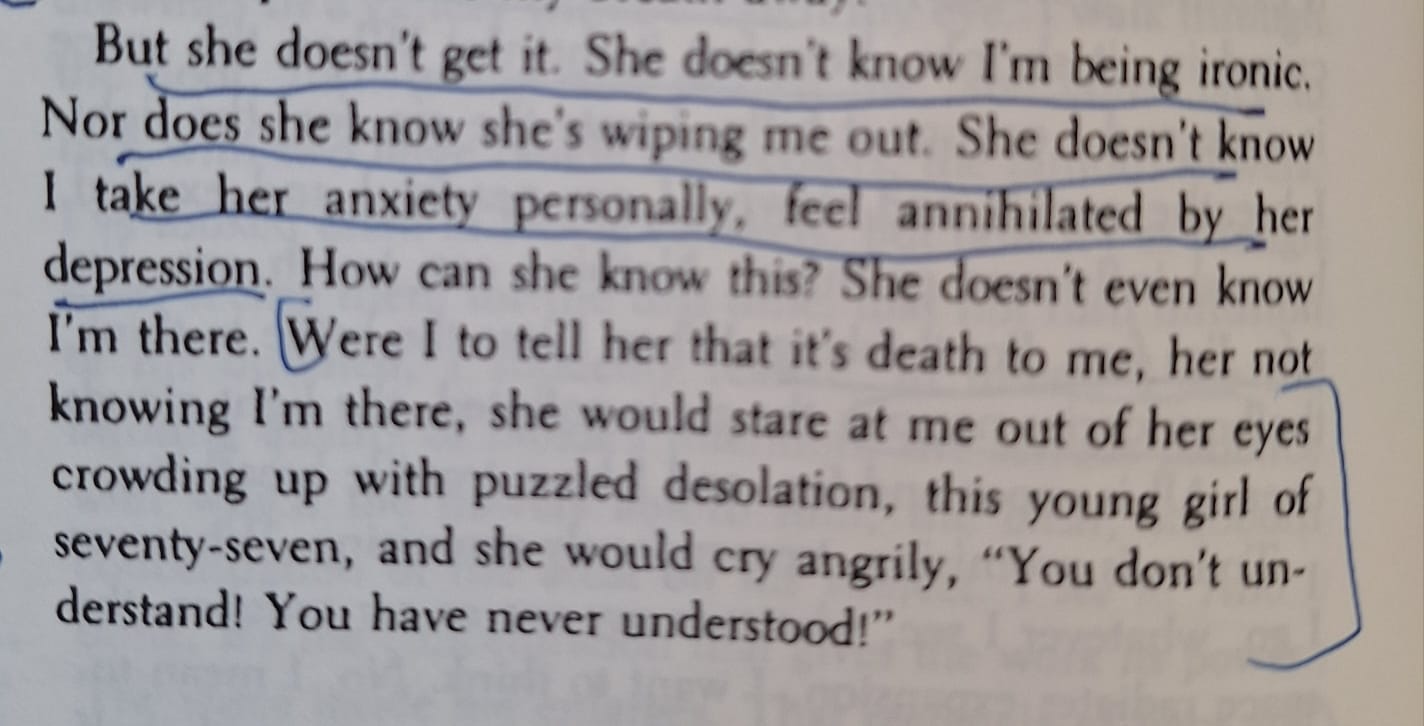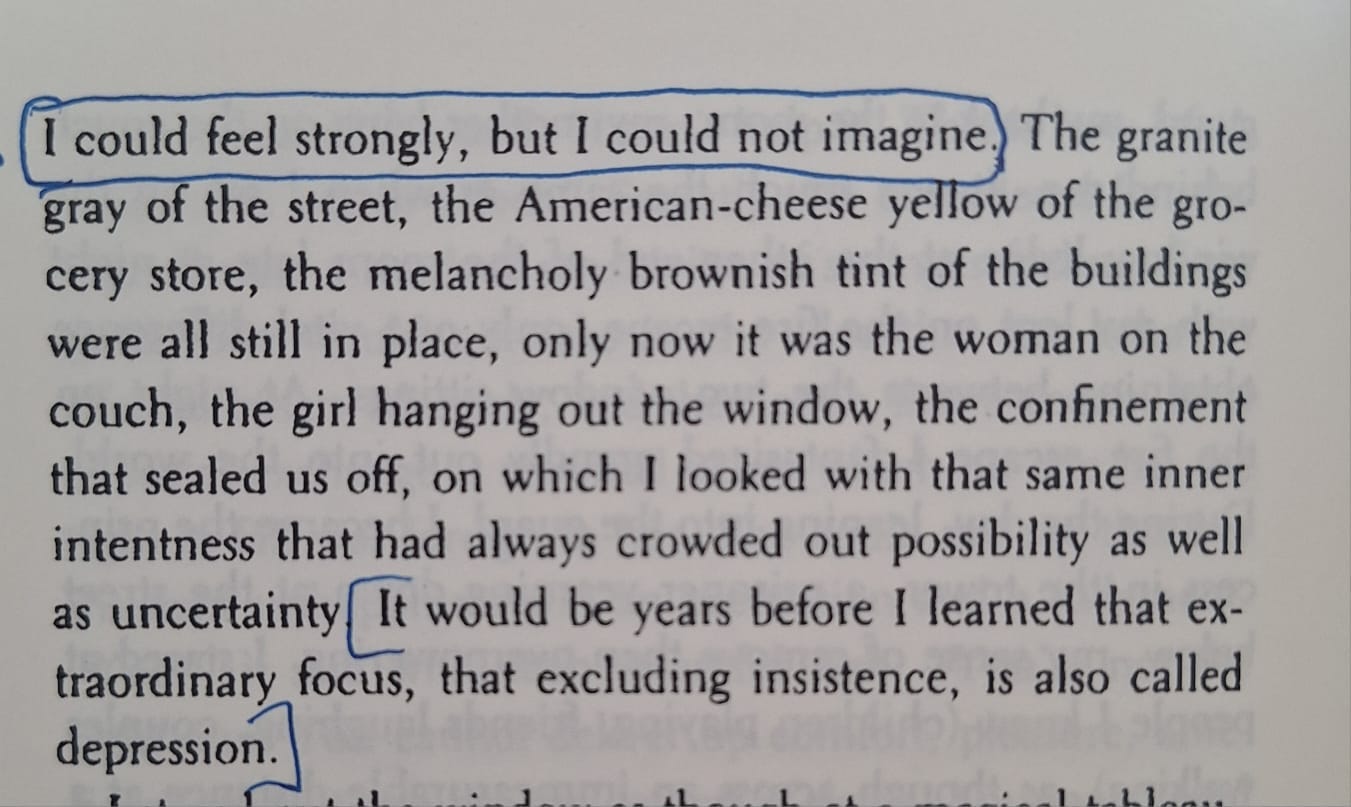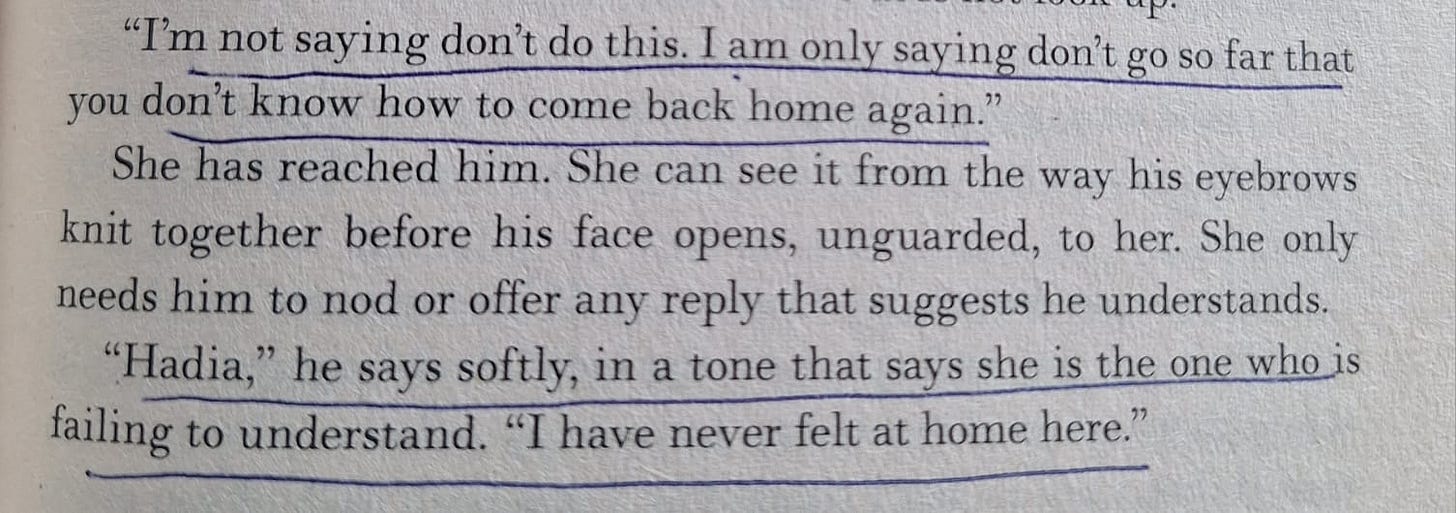I closed my eyes, like a cat caught in the middle of something it shouldn’t be doing, and pretended no one was watching me. Or, I simply shut the books I was reading every time certain parts made me feel awkward - as if closing them would undo whatever I’d just read, and therefore, experienced.
No books have made me feel so exposed as Fierce Attachments by Vivian Gornick and A Place for Us by Fatima Farheen Mirza. The former was recommended to me by a mentor who possesses the magical ability to see right through your soul, Natasha Badhwar, while the latter was gifted to me by one of the most courageous writer friends I know,
.Disclaimer: This is not an attempt at a balanced review - neither of these books are new releases anyway. Also, this essay may contain spoilers.
Here’s a quick background on why I picked these books up in the first place: Fierce Attachments is an extraordinary memoir that explores the intense, complicated but less talked about bond between a daughter and her mother, a Jewish family based in New York City. A Place for Us is the story of an Indian-American Shia Muslim family (the Rafiq family) torn between tradition and contemporary America, essentially a Muslim family drama.
You see, I have a thing for family dramas, especially because I never learned conflict resolution. For the longest time (until I bravely opted for therapy and had my head and heart examined by an unbiased outsider), my way of managing a conflict was fight-flight. And then, Flight. Flight. Flight.


So when books on family drama land in my lap, I treat them like a holy revelation, as if God herself has arrived in my living room with a DIY manual on life and relationships. These books offer me a glimpse into my own experiences, telling me warmly that I’m not alone - that my family and I are okay. In response to this revelation, I bow my head in respect, gratitude, and surrender.
I highlighted Fierce Attachments like crazy. Part of it is because I see myself as a student who’s learning how to write - so I make notes in books like “great example of show-don’t-tell” or “this is how you write from the body.”
But mostly, I underlined passages because of the resonance I felt, along with that awkward, familiar exposure. You know, the kind that hits after a loud, messy family argument that leaves you red in the face and parched in your throat - only to have the doorbell ring immediately after. Damn! Did you forget you were expecting a relative? You worry if they overheard, and more so if everyone at home can gather themselves quickly, act pleasant, and welcome the guest ‘courteously.’ It’s that kind of exposure and resonance these books evoked in me.
A Place for Us felt tedious - I skimmed through the last few pages. I sent a WhatsApp message to my writer friend, who had stopped reading it after the first few pages, “I know it’s slow but I’m always drawn to family conflict, esp if it’s about Muslim families.”
My friend, also a Muslim woman, replied, “Muslim family conflict / always the topic to take to bed ;) ”
Despite its slow pace, A Place for Us made me hide and cry - once while lying next to my husband so I wouldn’t wake him up in the middle of the night, and another time, alone in a café. I’m glad I was served coffee at the table, rather than fetching it myself; I didn’t want my swollen eyes to be seen by the other customers at 11 AM.
Another reason I skimmed through A Place for Us was because I wanted to rush to the ending. The book left me feeling angry. I texted my writer friend, nudging her to finish it soon so we could jointly vent about the Rafiq family.
I was hurt and I was fuming. Something in me wanted to re-write the ending. I found myself saying, “My story would end on a different note. I would end it differently.”
Amazed at the power and ownership I felt in that moment, I wondered, “Then why don’t you write your story?”
Why do we hold ourselves back from writing our stories?
In her quintessential manner, my writing coach
recently wrote about why writers avoid writing in ‘36 Flavours of Writer’s Block’.Her piece couldn’t have come at a better time. While there are many reasons I find myself avoiding writing, I wonder if this constant tug-of-war between ‘wanting to be seen’ and ‘not wanting to be seen’, is a major reason I hesitate to write my story.
I want to write my story. I want to be seen. But I also don’t want to write my story because what if I’m too seen?!
What if people see me in a way that exposes me to their judgement?
I crave the validation and the likes. I want people to share my story and say, “Thank you for writing this, Sanobar.” But I don’t want to come across as a cheap sell either.
I want to write about my relationships and my family - I want to write as a mother, as a daughter, as a wife, as a woman and yet, I don’t want people judging me for compromising my family’s privacy.
Or worse, I don’t want people to judge my family. Aakhir log kya kahengein?! It’s okay if I judge my family but I don’t want you to judge my family!
Or doubly worse, I don’t want to upset my family for writing about our family.
But here I am, pining, yearning, and hoping to write my story someday. Maybe, just maybe, you’ll find yourself in my story, and maybe it will encourage you to write your own. Because, whether we like it or not, writing our stories places us in a position of power - it removes the guise of playing the victim.
Writing your story also means you’re in charge of writing your own ending. So, how would you like your story to end?
As for me, I’d like my story to show that I tried. Through the highs and lows, the smiles and struggles, the twists and turns, I tried…
Note 1: I don’t mean to be judgemental about the Rafiq family. If anything, I understand and I understand so well - which explains my anger and revolt and the hope of having another ending.
Note 2: Beyond the normal reasons for not wanting to write, a genocide’s heaviness weighs me down. The American elections are to be held tomorrow, Tuesday, the 5th of November. Without wanting to take away from the Palestinians, it baffles me how people don’t see themselves in Palestine. How can we overlook the devaluation of lives by the wealthy and powerful? Jill Stein has repeatedly said it would take just one phone call from the U.S. to end this genocide. Imagine: a single phone call determines the fate of children, women, men, the elderly, disabled individuals, animals, our environment, and so on. Just one call. That’s how puny it makes me feel. I wanted to drop this essay before whatever tomorrow brings.
Note 3: Writing can make you feel quite lonely. Get yourself a community. I found my tribe in Ochre Sky Stories who are currently running their November and December workshops. Contact Natasha or Raju Tai directly for details - they’re both tagged in the essay.









Thank you for writing this, Sanobar. I learn so much from everything you write. More than that I unlearn/question so many of my biases. Now to read these books!
Oh, how I could have written many passages of this post. Actually I think I may have. I too struggled with writing about my family. I ended up removing a lot and I’m sure I will continue to. But family’s are complex. I know my parents tried their best. So even though it took me way longer to figure out how to be an adult, my memoir is also a tribute to them as well. But it’s not a hagiography, which Muslims tend to do. I hope you will write your story one day!
BTW: my life is basically like the story from a Place for Us. My family is Hyderabadi too and it hit way close to home. It had me and my sister in tears.